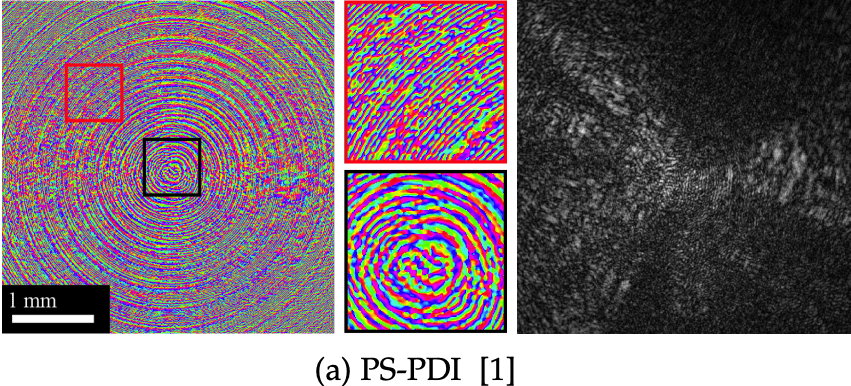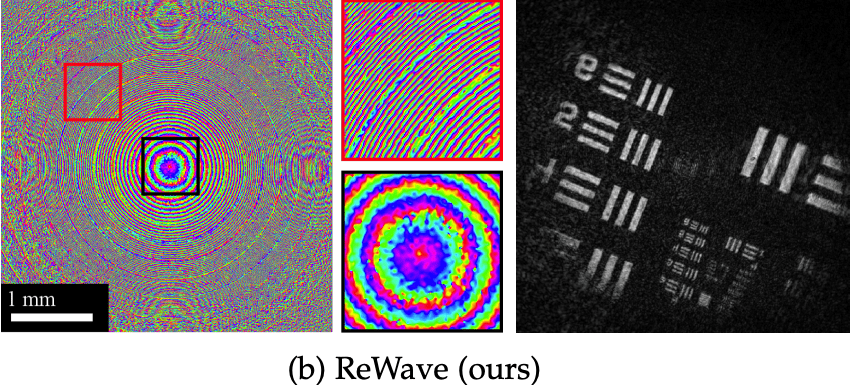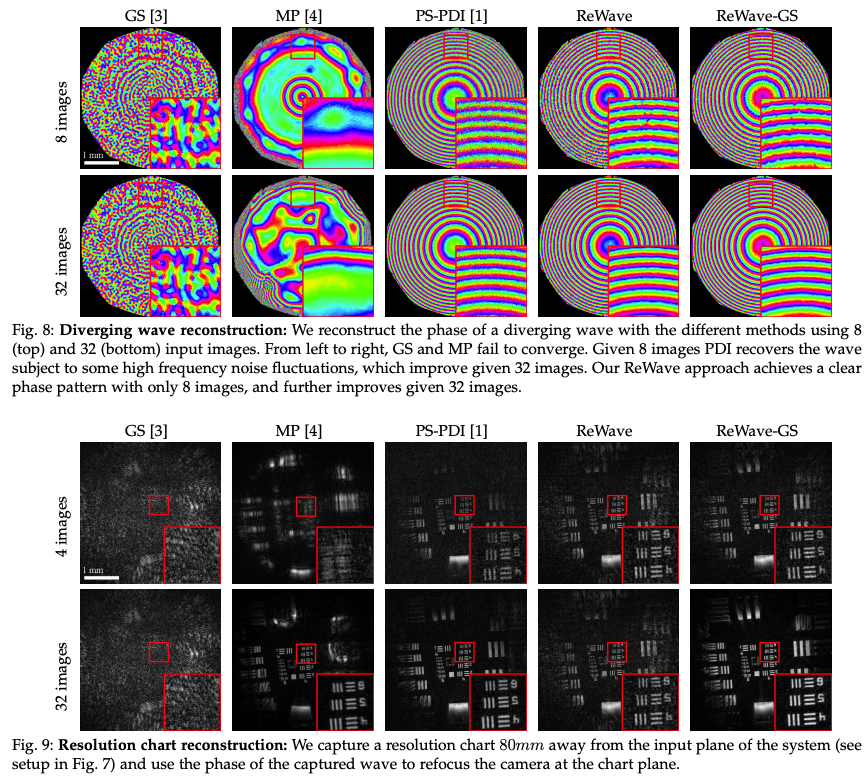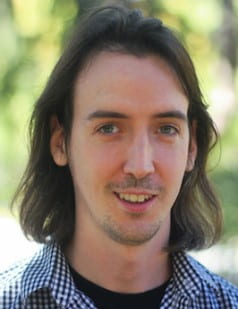ReWave


phase-shifting point diffraction interferometry
One of the classical results in wavefront sensing is phase-shifting point diffraction interferometry (PS-PDI), where the phase of a wavefront is measured by interfering it with a planar reference created from the incident wave itself. The limiting drawback of this approach is that the planar reference, often created by passing light through a narrow pinhole, is dim and noise-sensitive.
ReWave
We address this limitation with a novel approach called ReWave that uses a non-planar reference that is designed to be brighter. The reference wave is designed in a specific way that would still allow for analytic phase recovery, exploiting ideas of sparse phase retrieval algorithms. ReWave requires only four image intensity measurements and is significantly more robust to noise compared to PS-PDI. We validate the robustness and applicability of our approach using a suite of simulated and real results.
Brighter Reference Beam
More Info
Our primary contribution is the adaptive design of a non-planar reference wave that is significantly brighter than the traditional planar reference that is typically used in PS-PDI, which makes the resulting technique robust to noise. Further, following work in sparse phase retrieval, the reference wave is created so as to permit an analytical reconstruction.
Analytical Solution Guaranteed
More Info
In the context of phase retrieval, our method provides an analytical solution with only four measurements. In contrast, state-of-the-art techniques based on phase modulation require more measurements, and are computationally intensive requiring iterative optimization while lacking convergence guarantees.
High Quality Reconstruction
More Info
We have implemented our algorithm on a lab prototype and successfully demonstrated various tasks like refocusing and imaging through scattering media. The reconstruction from ReWave shows a clear quadratic phase profile, while that of PS-PDI is riddled with errors. As a consequence, when we computationally correct the ghosting introduced by the Fresnel lens, ReWave produces a higher quality result.



People

Wei-Yu Chen

Anat Levin

Matthew O’Toole

Aswin C. Sankaranarayanan
